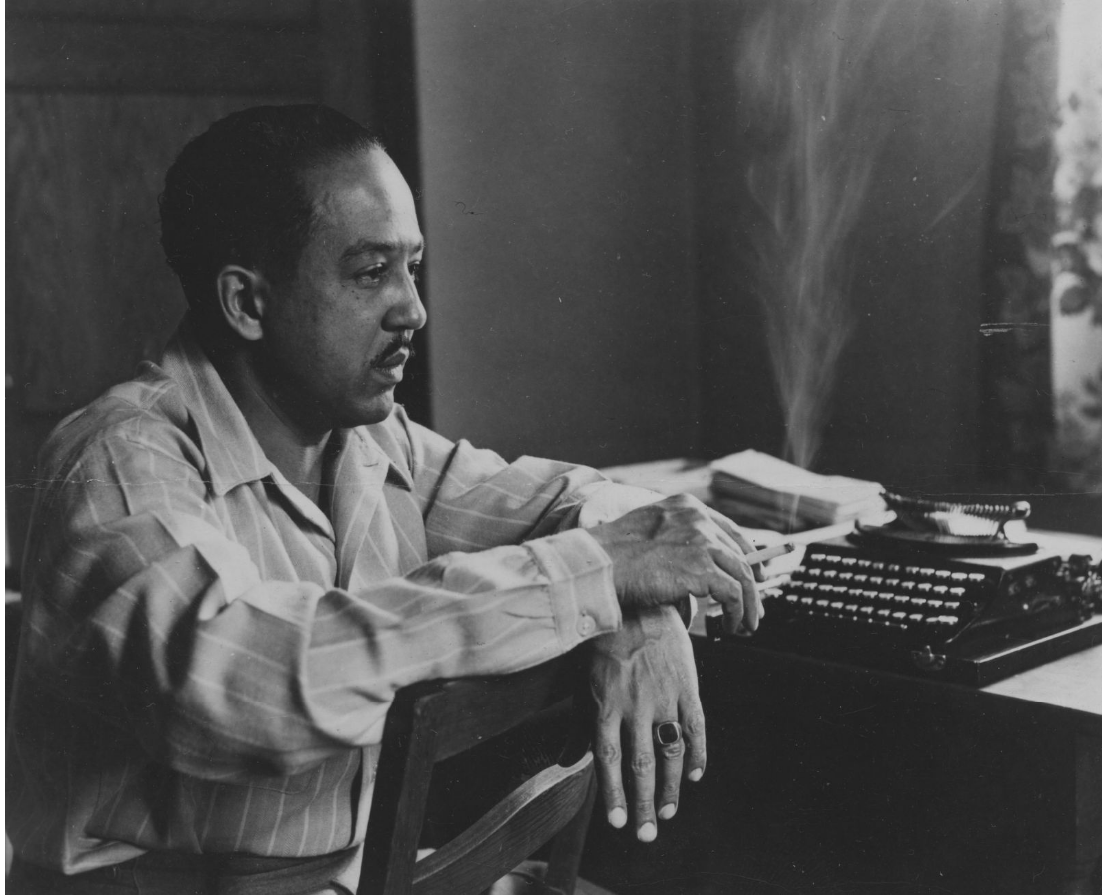I Look at the World: Langston Hughes' Posthumous Call to Action
Ellie Bodkin

When we speak of great poets, Langston Hughes will forever be one of the first to come to mind for so many people. One of the great contributors of culture to New York City, and the world. In today's post I'd like to focus on I Look at the World. Originally written in 1930, I Look at the World wasn't actually published until 2009 after being discovered written in pencil in one of his books all those years later. Now a relatively well known work of his. The tone of the poem is one that begins very somber, the author depicting a person of colour, likely a black person realizing they have been completely separated from freedoms that many others share and speaking of the reality they are enduring.
"I look at the world
From awakening eyes in a black face—
And this is what I see:
This fenced-off narrow space
Assigned to me. "
The choice to begin the poem with this imagery, someone awakening to see their oppression gives us a dark tone to begin with. An innocent person, waking from their slumber only to realize the situation they are in is an unsettling image. Especially when you understand the type of oppression Hughes is talking about here. Racial oppression as we should all understand is inescapable for those it effects, and ridiculous that anyone perpetuates and upholds it. "Fenced off" is certainly a great way to put it. As if someone restricted to you certain streets of your city, a certain level of education, support, a certain quality of life. All because you made the mistake of being born the "wrong" race.

This poem was written during the Harlem Renaissance, a time of major Black cultural revival in New York and across the United States. It was a period where Black artists, musicians, writers, and poets used their voices to shine a light on injustice and imagine a better future. Hughes was one of the leaders of that movement. His poetry doesn’t just describe life, it challenges the world to change. The middle and end of this poem do exactly that. The speaker begins to reject this narrow world and starts to look toward something greater.
“I look then at the silly walls
Through dark eyes in a dark face—
And this is what I know:
That all these walls oppression builds
Will have to go!”
Here we see Hughes shifting from observation to realization. The walls, once seen as permanent, are now called “silly.” That word choice is important. It suggests that these barriers, which once seemed serious and powerful, are actually weak and foolish. Oppression is exposed for what it is: built by humans, not by nature, and therefore not unchangeable. The phrase “will have to go” is full of certainty. There’s no hesitation in it. The walls must fall.

This is where the tone of the poem starts to shift from somber to hopeful, and even defiant. Hughes moves from describing the problem to envisioning a solution. He speaks not just for himself, but for a collective. He calls for unity and action:
“I look at my own body
With eyes no longer blind—
And I see that my own hands can make
The world that’s in my mind.”
This is one of the most powerful lines in the entire poem. The phrase “eyes no longer blind” suggests an awakening, a reclaiming of agency. The speaker is no longer passive. The reference to “my own hands” is literal and symbolic. It’s about self-determination. About realizing that freedom will not be given, it must be built. The world can be shaped by those who have been denied a place in it, once they realize their power.

The poem ends with a declaration that is both inspiring and urgent:
“Then let us hurry, comrades,
The road to find.”
This is the final push. Hughes is calling not just for awareness, but for movement. The use of “comrades” speaks to solidarity. It’s a call to action for everyone who has faced oppression, and everyone willing to fight against it. He does not suggest that the journey will be easy, only that it is necessary.

Even though this poem was written almost a century ago, it speaks directly to today’s world. Systemic racism, inequality, and narrow spaces still exist. But so does the power to dismantle them. Hughes’s poem is not just about what he sees. It’s about what we choose to see. And what we choose to do next.
Langston Hughes looked at the world and found both injustice and possibility. He gives us the same opportunity. The question now is, will we build the world that’s in our minds?
Comments
Post a Comment